Tech CEO Dan O’Dowd calls out Elon Musk’s “false promises” in new US Senate campaign ad
Santa Barbara billionaire’s campaign is aiming to ensure computers and tech are safe for humanity
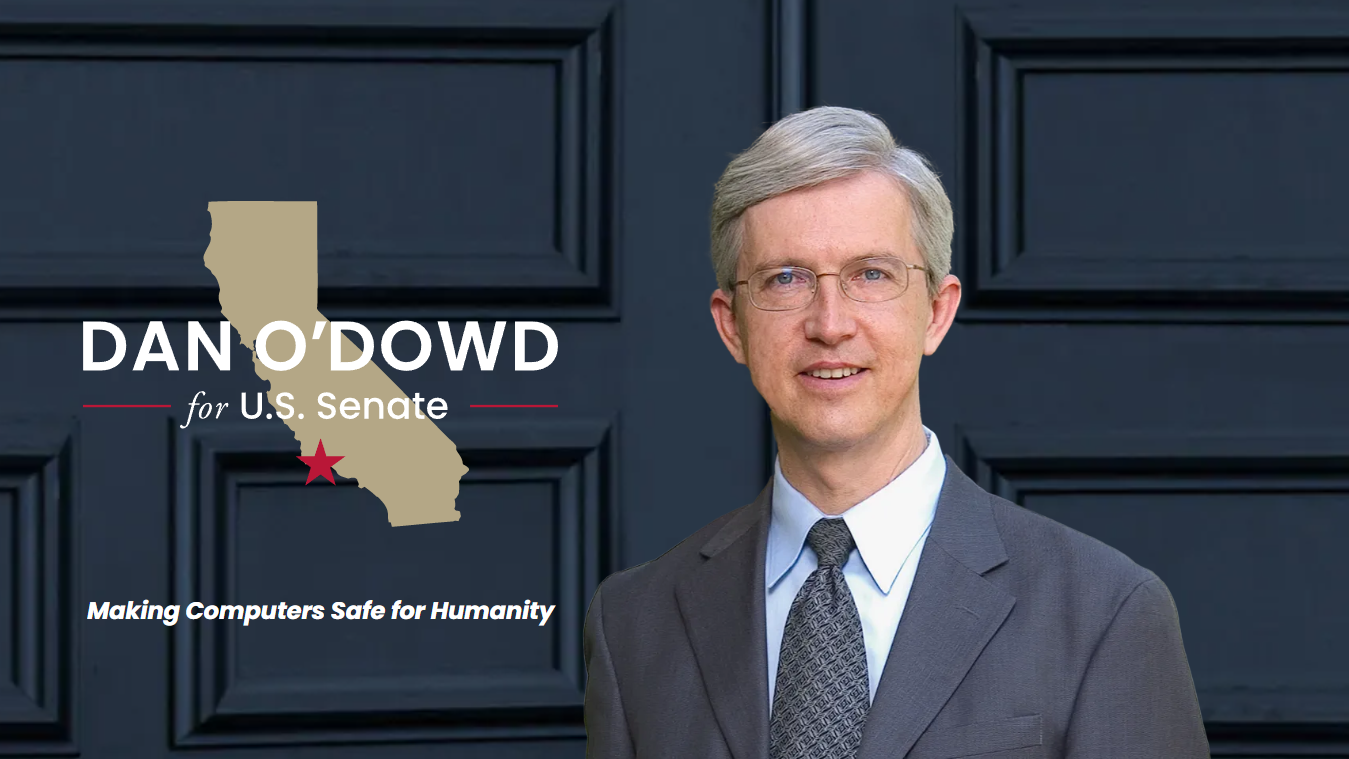

California tech CEO Dan O’Dowd has released a new ad calling out Elon Musk’s “false promises” as part of his campaign for US Senate.
As one of 23 candidates on the ballot for California, O’Dowd is not actively campaigning against other candidates, or current Senator Alex Padilla. Instead, his campaign focuses on the single issue of tech safety, with Elon Musk and Tesla’s Full Self-Driving technology, which he deems to be unsafe and unproven, being brought under the spotlight.
O’Dowd himself is the founder and CEO of Green Hills Software, and an entrepreneur with more than 25 years’ experience in designing and writing software systems that “never fails and can’t be hacked”. He has built operating systems for the U.S. military’s fighter jets, as well as for the likes of NASA, Boeing, and Airbus.
As part of his drive for safer tech, his campaign will now air a new statewide TV ad, in which O’Dowd speaks directly on the various promises Musk used to sell his tech to both customers and investors.
Titled “Promised,” the two-minute piece concludes with the question: “Elon, is your Full Self-Driving software just a trillion-dollar Ponzi scheme? Did you become the wealthiest man in history by swindling customers and investors?"
Throughout the duration of the ad, O’Dowd responds to previous promises made by Musk, such as his 2019 assertion that Tesla would have “over a million robotaxis on the road” by 2020, with the profitable gross profit from each one “probably something on the order of $30,000 per year".
O’Dowd responds: “Elon Musk promised to pay a million customers 30,000 dollars a year if they bought his car. They bought his car. So, where's their money?”
Get the ITPro daily newsletter
Sign up today and you will receive a free copy of our Future Focus 2025 report - the leading guidance on AI, cybersecurity and other IT challenges as per 700+ senior executives
“He promised customers if they bought his car, its value would increase to 200,000 dollars. They bought his car. So, where's their money?” O’Dowd says.
He then goes on to note Musk’s proclamation that making $50 billion worth of cars would be “like having $50 billion of incremental profit".
“He promised investors if they bought his stock, they would get 50 billion dollars a year in profits from robotaxis. They bought his stock. So, where's their money?” he said.
RELATED RESOURCE
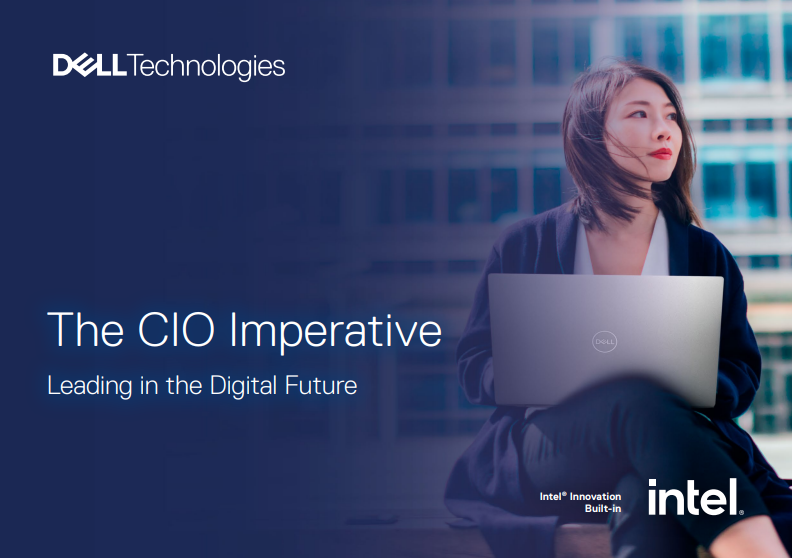
The CIO imperative: Leading in the digital future
Reimagine how to differentiate with technology
“And he told investors Tesla was worth 1 trillion dollars by claiming Tesla was the leader in driverless robotaxi technology. But Tesla doesn't have driverless robotaxi technology. Tesla's full self-driving software requires a driver!”
He adds that Musk’s withdrawal of $48 billion, said to be seven times the profits the company has ever made, and also points out that his compensation was a thousand times the average for a Fortune 500 CEO.
According to O’Dowd’s own analysis, “Full-Self Driving” tech commits a critical driving error “about every 8 minutes” – which includes making contact with an avoidable object, disobeying traffic lights signs or signals, disobeying safety personnel or safety vehicles, and making dangerous manoeuvres.
In fact, the National Highway Traffic Safety Administration (NHTSA) is currently investigating a list of 42 accidents, that may involve advanced Driver-assistance systems (ADAS), with Tesla named in 35 of those.
“I cannot think of any other commercial product that has a critical safety malfunction (or any serious malfunction) every 8 minutes,” O’Dowd wrote. “Who would buy anything that malfunctions every 8 minutes?”
Dan is a freelance writer and regular contributor to ChannelPro, covering the latest news stories across the IT, technology, and channel landscapes. Topics regularly cover cloud technologies, cyber security, software and operating system guides, and the latest mergers and acquisitions.
A journalism graduate from Leeds Beckett University, he combines a passion for the written word with a keen interest in the latest technology and its influence in an increasingly connected world.
He started writing for ChannelPro back in 2016, focusing on a mixture of news and technology guides, before becoming a regular contributor to ITPro. Elsewhere, he has previously written news and features across a range of other topics, including sport, music, and general news.
-
 Should AI PCs be part of your next hardware refresh?
Should AI PCs be part of your next hardware refresh?AI PCs are fast becoming a business staple and a surefire way to future-proof your business
By Bobby Hellard
-
 Westcon-Comstor and Vectra AI launch brace of new channel initiatives
Westcon-Comstor and Vectra AI launch brace of new channel initiativesNews Westcon-Comstor and Vectra AI have announced the launch of two new channel growth initiatives focused on the managed security service provider (MSSP) space and AWS Marketplace.
By Daniel Todd
-
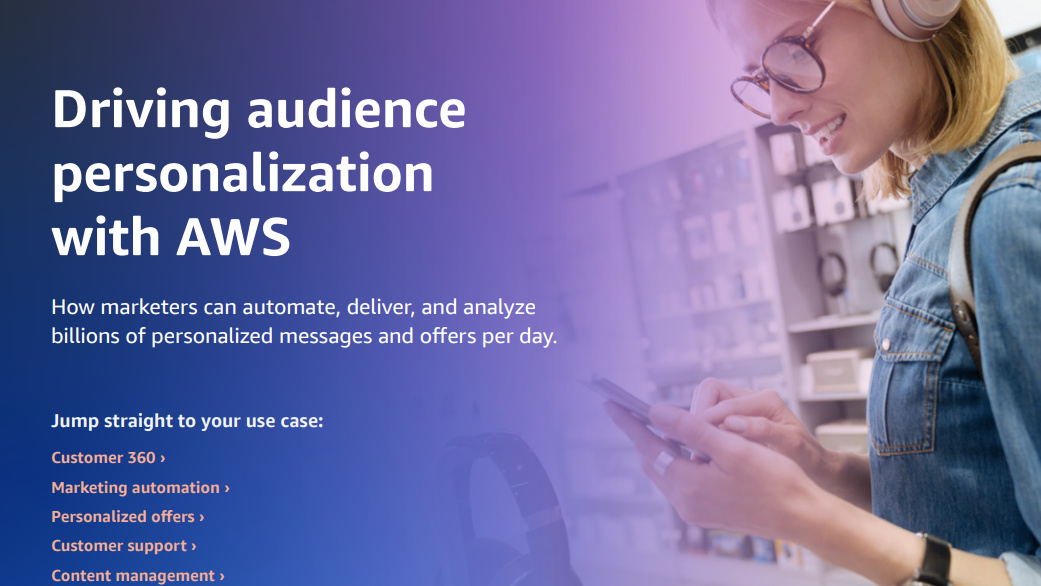 Automate personalization with AWS
Automate personalization with AWSWhitepaper How marketers can automate, deliver, and analyze billions of personalized messages and offers per day
By ITPro
-
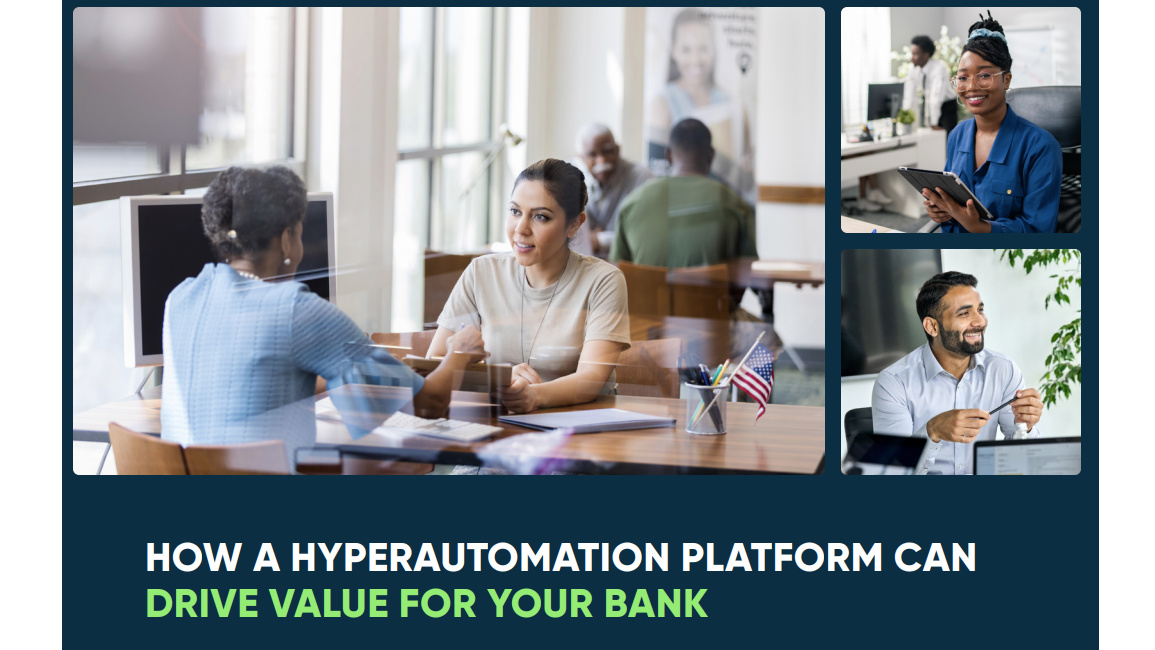 How a hyper-automation platform can drive value for your bank
How a hyper-automation platform can drive value for your bankWhitepaper Five ways automated processes can drive revenue and growth
By ITPro
-
 Appian wants to be the AI company for AI skeptics
Appian wants to be the AI company for AI skepticsAnalysis The firm outlines its AI strategy at Appian World 2023 while using ChatGPT and Midjourney to create scripts and imagery for keynote presentations
By Rory Bathgate
-
 Workday hit with claims its AI hiring systems are discriminatory
Workday hit with claims its AI hiring systems are discriminatoryNews An African American plaintiff has alleged that Workday's systems prevented him from being hired on the basis of his race, age, and mental health
By Rory Bathgate
-
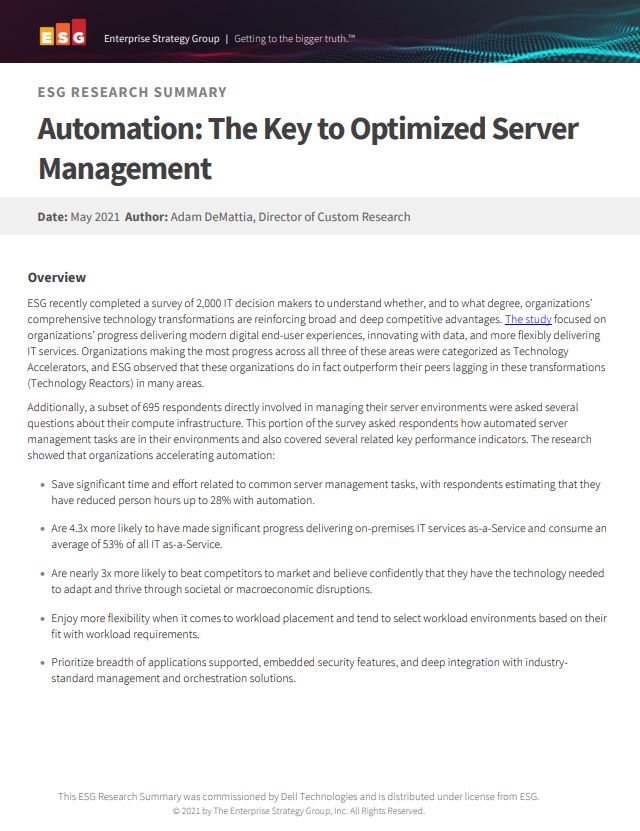 Automation: The key to optimised server management
Automation: The key to optimised server managementWhitepaper Deliver modern digital end-user experiences, innovate with data, and more flexibly deliver IT services
By ITPro
-
 Drive digital transformation with IBM process mining
Drive digital transformation with IBM process miningWhitepaper A process discovery, analysis and monitoring technique to help businesses succeed throughout the entire DX journey
By ITPro
-
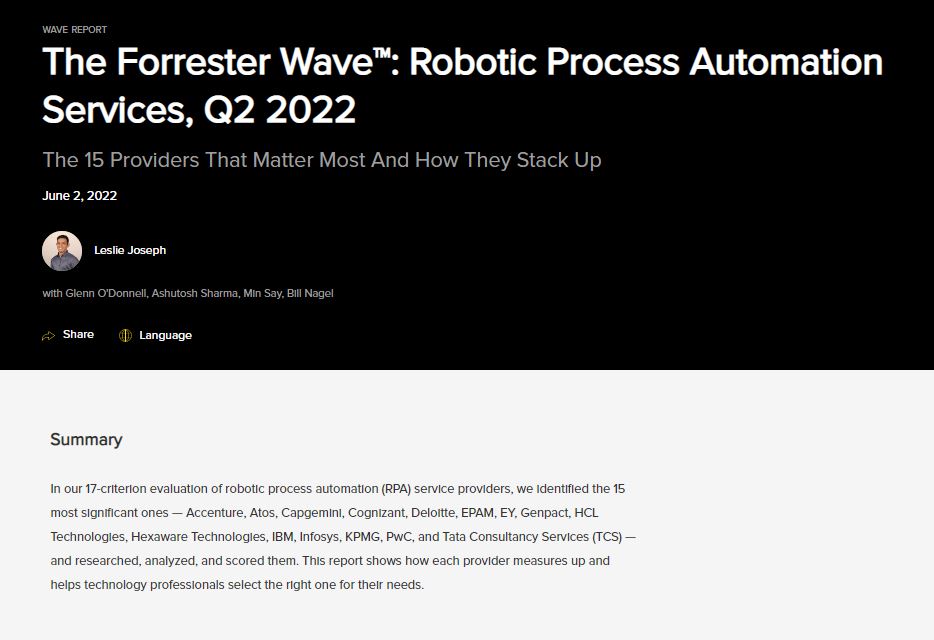 The Forrester Wave™: Robotic Process Automation Services
The Forrester Wave™: Robotic Process Automation ServicesWhitepaper The 15 providers that matter most and how they stack up
By ITPro
-
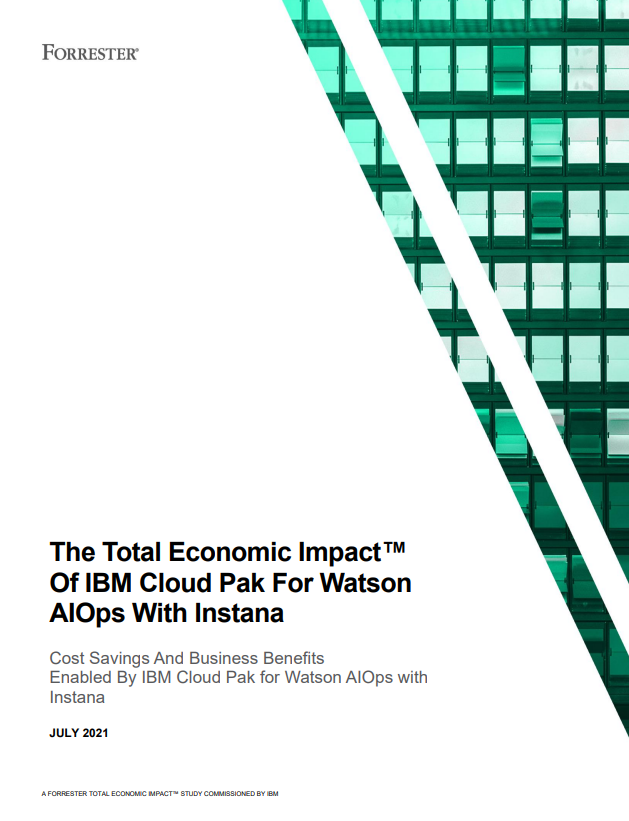 The Total Economic Impact™ of IBM Cloud Pak® for Watson AIOps with Instana
The Total Economic Impact™ of IBM Cloud Pak® for Watson AIOps with InstanaWhitepaper Cost savings and business benefits
By ITPro